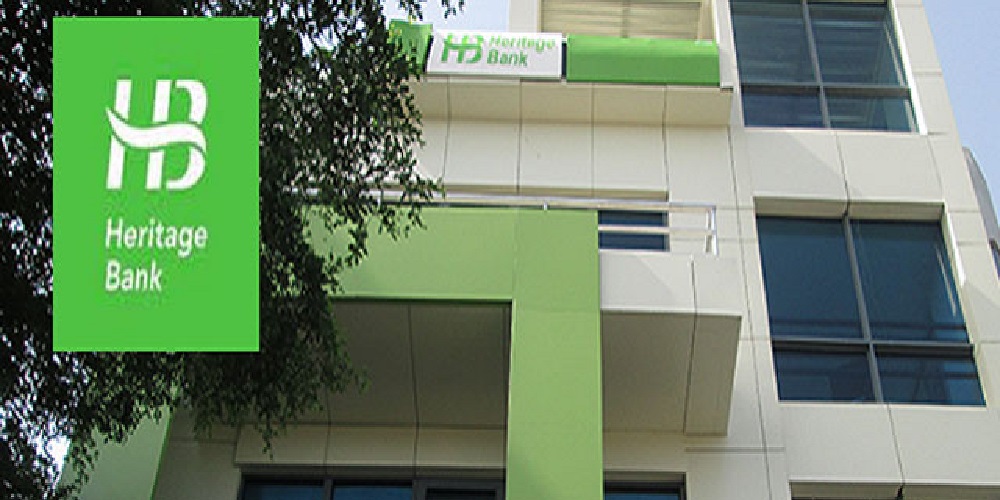Many customers of Heritage Bank woke up on Monday to the shocking news of revoked licence of Heritage Bank by the Central Bank of Nigeria (CBN).
Before the regulatory hammer on Heritage Bank, the CBN said the bank had continued to suffer and had no reasonable prospects of recovery, thereby making the revocation of the license the next necessary step.
Heritage Bank traces its roots to the late 1970s, when it was founded as Societe Generale Bank (Nigeria), by the late Olusola Saraki.
In January 2006, the Central Bank closed down Societe Generale on account of failure to meet new minimum capital requirements of N25billion for a national bank. Societe Generale successfully challenged the closure in court.
In 2012, the core investor in Heritage Bank, IEI Plc, through IEI Investments Limited, acquired the Societe Generale Bank of Nigeria license from the Central Bank of Nigeria.
In December 2012, the Central Bank re-issued Societe Generale’s banking license, but as a regional bank. Having acquired the banking license, the new ownership re-branded the bank as Heritage Banking Company Limited and opened for business under the new name on March 4, 2013.
As of September 2013, the bank’s stock was publicly owned by the following corporate entities and individuals: Heritage Investment Services Limited (80percent); Priority shareholders (9percent), other minority shareholders (11percent).
In October 2014, Heritage Banking Company Limited successfully met the requirements of the Asset Management Corporation of Nigeria (AMCON) and the Central Bank of Nigeria toward owning 100 percent shares in Enterprise Bank Limited.
In October 2014, Heritage Bank acquired 100percent shareholding in Enterprise Bank Limited, a nationalised financial services provider with over 160 branches and $1.6 billion in assets. Heritage paid AMCON $340 million (N56.1 billion), in cash, for the acquisition.
On January 27, 2015, AMCON officially transferred ownership of Enterprise Bank Ltd to Heritage Bank Plc.
Heritage Investment Services Limited, the investment arm of Heritage Banking Company Limited, was the winning bidder out of 24 Nigerian and International companies who competed for the acquisition of Enterprise Bank.
Heritage Bank has 127 branches and 202 automated banking centres with over 350 ATMs in all states of the federation and the Federal Capital Territory. Heritage Bank has 4000 employees.
Jani Ibrahim, a non-executive director, serves as the acting chairman of the seven-person board of directors. The managing director and chief executive officer is Akinola George-Taylor.
Following the revocation of its licence, the Nigeria Deposit Insurance Corporation (NDIC) has also been appointed as the Liquidator of the bank in accordance with Section 12 (2) of BOFIA, 2020, the CBN said in the statement signed by Hakama Sidi Ali, acting Director, Corporate Communications.
Headquartered in Lagos, Nigeria, Heritage Bank was one of the commercial banks licensed by the Central Bank of Nigeria with a national operating license, that offered retail banking, corporate banking, online/internet banking, investment banking and asset management services.
Having fulfilled all required criteria then, the bank returned 100percent of existing Societe Generale account holders’ money to their owners. As of December 2015, the total asset valuation of the bank was estimated at over $1.7billion (N483.4 billion). Its shareholders’ equity was worth at least $88 million (N25 billion), the minimum capital requirement by the Central Bank of Nigeria, for national banks.
The CBN said the licence revocation action it took on Heritage Bank reflects its continued commitment to take all necessary steps to ensure the safety and soundness of Nigeria’s financial system.
“The Central Bank of Nigeria (CBN), in accordance with its mandate to promote a sound financial system in Nigeria and in exercise of its powers under Section 12 of the Banks and Other Financial Act (BOFIA) 2020, hereby revokes the licence of Heritage Bank Plc with immediate effect.
“This action has become necessary due to the bank’s breach of Section 12 (1) of BOFIA, 2020. The Board and Management of the bank have not been able to improve the bank’s financial performance, a situation which constitutes a threat to financial stability. This follows a period during which the CBN engaged with the bank and prescribed various supervisory steps intended to stem the decline.
“Consequently, the CBN has taken this action to strengthen public confidence in the banking system and ensure that the soundness of our financial system is not impaired. The Nigeria Deposit Insurance Corporation (NDIC) is hereby appointed as the Liquidator of the bank in accordance with Section 12 (2) of BOFIA, 2020,” CBN said.

